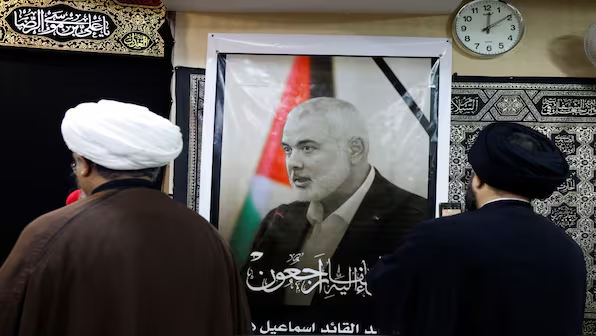A shocking report has emerged detailing the assassination of Hamas leader Ismail Haniyeh in Tehran. The headline “Hamas Chief Killed by Bomb Hidden 2 Months Ago in Tehran Guesthouse: Report” encapsulates a sophisticated and daring operation that has sent ripples through the Middle East’s geopolitical landscape.
The Intricate Assassination Plan
According to seven Middle Eastern officials, including two Iranians, and an American official, Haniyeh was killed by an explosive device covertly smuggled into his Tehran guesthouse. The bomb had reportedly been hidden approximately two months prior to the assassination in a guesthouse run and protected by the Islamic Revolutionary Guards Corps. This guesthouse is part of a large compound known as Neshat, located in an upscale neighborhood of northern Tehran.
The explosive device was detonated remotely once Haniyeh’s presence in his room was confirmed. The blast not only killed Haniyeh but also claimed the life of his bodyguard. The explosion caused significant damage, shaking the building, shattering windows, and partially collapsing an exterior wall.
Security Failures and International Reactions
The successful planting and detonation of the bomb represent a catastrophic failure of intelligence and security for Iran, particularly for the Revolutionary Guards. The compound where Haniyeh was staying is frequently used for retreats, secret meetings, and housing prominent guests. The fact that a bomb could remain hidden for weeks before being triggered exposes a significant vulnerability in Iran’s security apparatus.
Israeli intelligence officials reportedly briefed the United States and other Western governments on the operation’s details immediately after its execution. While Israel has not publicly acknowledged responsibility, several US officials, speaking anonymously, have assessed that Israel was behind the assassination.
The killing of Haniyeh, a top negotiator in Gaza cease-fire talks, threatens to unleash another wave of violence in the Middle East and potentially derail ongoing peace negotiations. Secretary of State Antony J. Blinken stated that the United States had no advance knowledge of the assassination plot.
Escalating Tensions and Uncertain Future
In the aftermath of the assassination, Iran’s supreme leader, Ayatollah Ali Khamenei, summoned members of Iran’s Supreme National Security Council for an emergency meeting. During this meeting, Khamenei reportedly issued an order to strike Israel in retaliation, according to three Iranian officials.
The sophistication and precision of the attack have drawn comparisons to previous high-profile assassinations attributed to Israel, such as the killing of Iran’s top nuclear scientist Mohsen Fakhrizadeh in 2020 using a remote-controlled AI robot weapon.
The assassination method initially sparked speculation about a possible missile strike, but investigation revealed that the explosion originated from inside Haniyeh’s room, confirming the presence of a pre-planted explosive device.
This daring assassination not only demonstrates the reach and capabilities of Israel’s intelligence services but also exposes vulnerabilities in Iran’s security apparatus. As the region grapples with the fallout from this event, the potential for further violence and the impact on peace negotiations remain critical concerns for all parties involved.
The killing of Haniyeh, coming shortly after the assassination of a senior Hezbollah commander in Beirut, has heightened fears of a widening conflict in the Middle East. These back-to-back assassinations of senior leaders linked to Iran have raised the stakes in the ongoing shadow war between Israel and its regional adversaries.
The report that Hamas Chief Killed by Bomb Hidden 2 Months Ago in Tehran Guesthouse reveals a meticulously planned operation with far-reaching consequences. This assassination marks a significant escalation in regional tensions and poses new challenges for diplomatic efforts aimed at stabilizing the Middle East. As investigations continue and nations react, the full impact of this covert operation on regional stability and peace prospects remains to be seen.
Related NewsHamas Chief Ismail Haniyeh Assassinated in Tehran
For More Updateshttps://x.com/palestine
















